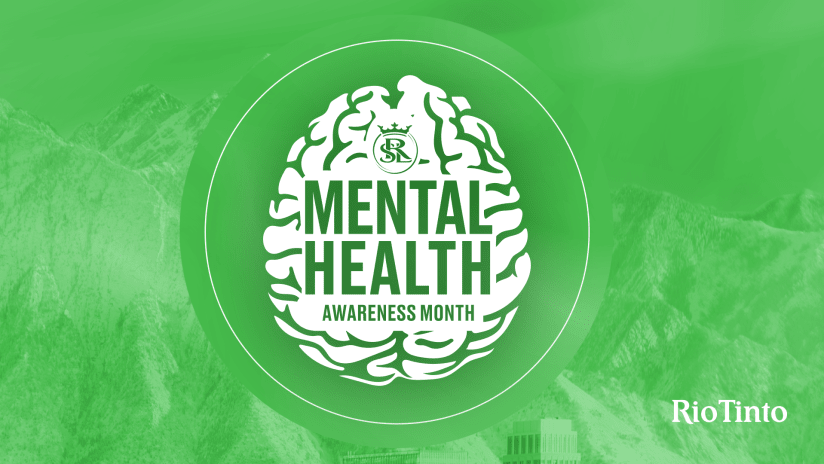The beautiful game has long been a source of community for athletes and fans across the globe. Here at Real Salt Lake, from players, to coaches and staff, we all share the common passion for our favorite sport. During Mental Health Awareness Month, the Club sought stories from staff members and coaches about how soccer has positively affected their mental health and brought them closer to others.
For RSL’s Multimedia Producer, Luis Marin and Real Monarchs Goalkeeping Coach Mirza Harambasic, the game brought a sense of community and commonality with those they met after moving to the United States.
Harambasic moved to Western Michigan from Bosnia as a refugee when he was a child. There he found a large immigrant community, and in high school the sport brought those from all different backgrounds together.
“Soccer is a universal language and everyone around the world plays, so it's such an easy way to make friends or fit into a community,” Haramabasic said.
Now here at Real Monarchs, Harambasic has found a similar community rooted in common interest.
“The relationships here are unbelievable. RSL is a family Club, a community Club and you get that from everyone you interact with,” Harambasic said.
“If you're in a good mental health space, it affects everything in your life, from your physical health to your relationships with other people. If you're good, mentally you are. Feeling good and confident and happy, then your relationships with your loved ones at work, your performance at work, all those things physically, how you're feeling will be good as well.”
For Marin who moved to the United States in 2018 from Venezuela, soccer offered both community and a mental refuge.
“Soccer helps your mental health in many ways,” Marin said.
“Maybe you are going through some difficult moments in life but soccer can help you feel better. It is an opportunity to disconnect from your day to day, and help you enjoy life in a simple way. If you have any kind of problems outside of soccer, soccer will help you manage any situation. Life is like soccer. You always have a chance to do it better if you make a mistake. That’s why soccer is important, the sport will prepare you to handle difficult situations.”
Marin lived in Miami before moving to Salt Lake City and in both locations he found groups of people who helped him settle into his new surroundings thanks to soccer.
“Besides my wife and family, soccer is the most important thing I have in my life. Since I was a child, it was the only place where I can be myself, where I can be happy and make friends with the same passion.”
For Allison Kolsrud, RSL’s Game Presentation Coordinator, who grew up playing soccer and then played in college at the University of Northern-Colorado, soccer gave her something to look forward to and helped her transition from full-time student-athlete to young professional.
“I have so many friends or people that I grew up playing with that I refer to as family now,” Kolsrud.
“Whether it was a bad day at school or you just weren't feeling great mentally going to practice was something to always look forward to.”
However once she finished school, her relationship with the game changed.
“After college, that was a little hard,” Kolsurd said.
“I didn't think I'd play soccer for a while. When you’re a college athlete, it feels like it’s a job. So getting back to basics and just playing for fun now is a huge relief. That’s why I love to go play with everyone during Drop-In at ZBRA because you just go to have fun.”
As RSL continues to celebrate Mental Health Awareness Month, the Club is also highlighting drop-in play at ZBRA which anyone in the community can participate in. More details can be found here.
And finally, for Autumn Jenson, RSL’s Manager of Partnership Services, soccer has always been a large part of her life, and now she gets to share that with her younger brother.
“Soccer was a great way for me to stay active, meet new people, and it helped me stay active,” Jenson said.
“It also was a good way to get out of the house. If I was feeling sad, it was a great way to start feeling better because it was something that I enjoyed doing. Now I enjoy watching my little brother play. It's fun watching him grow as a soccer player and seeing how much he improves and how much it's become a big part of his life.”




